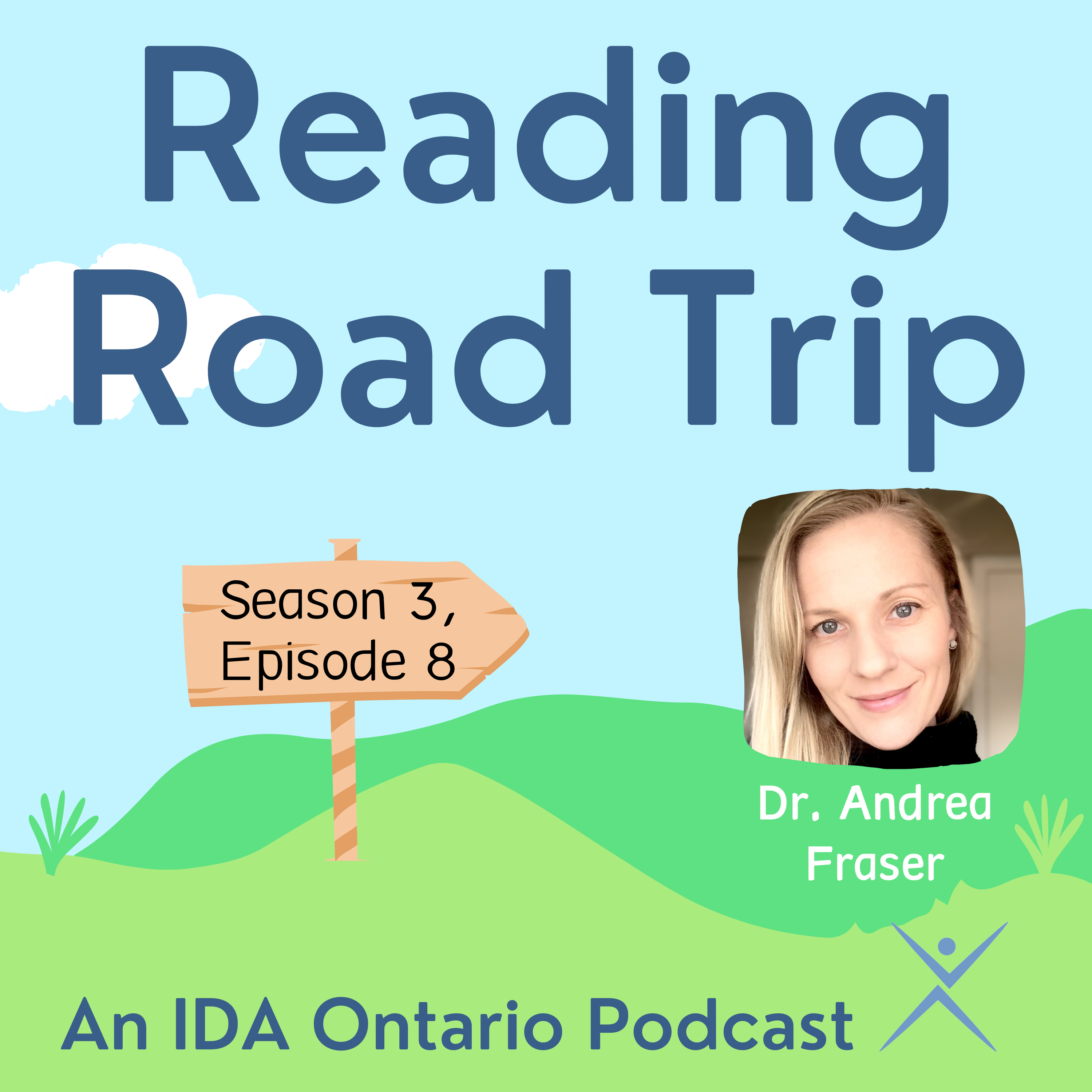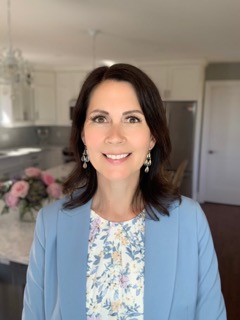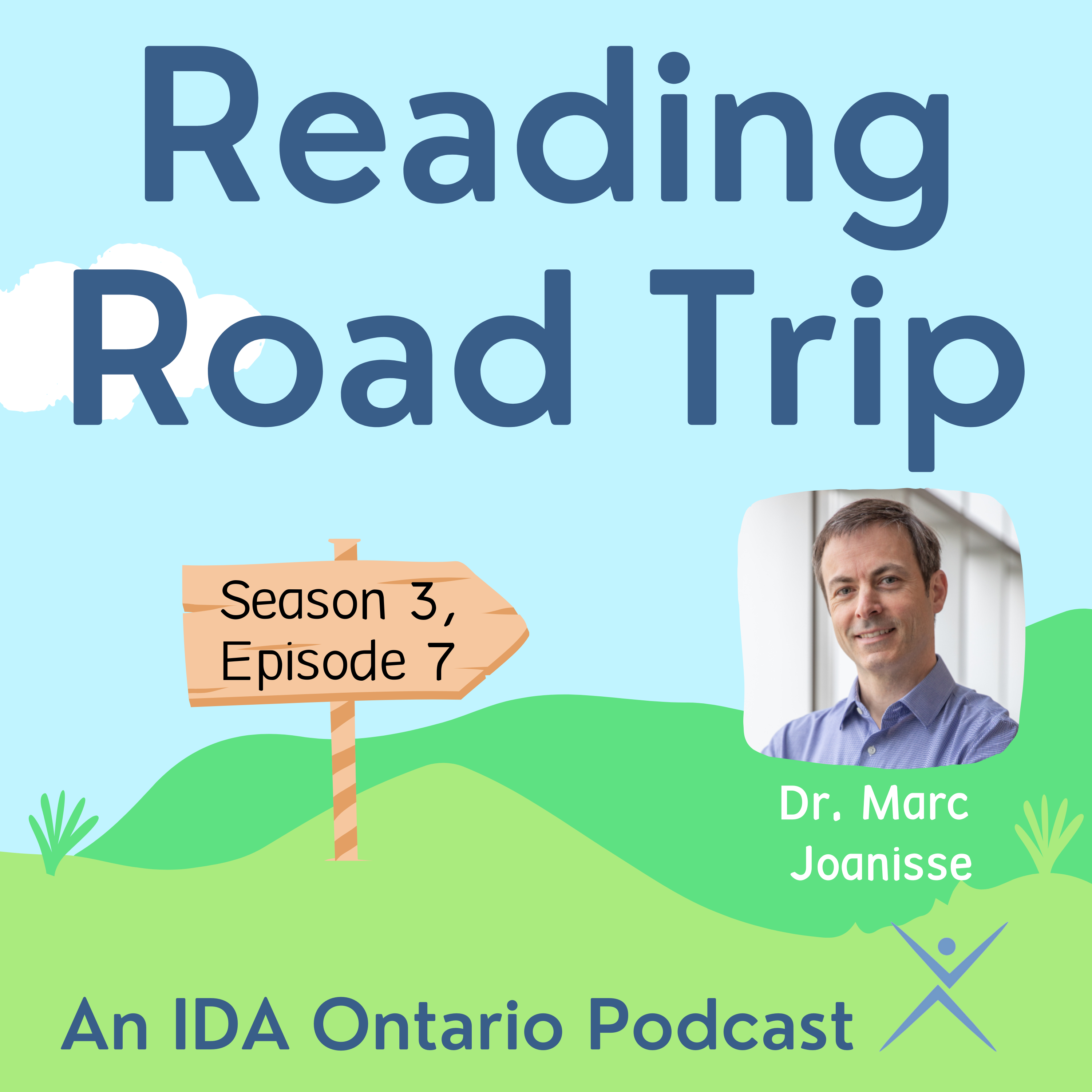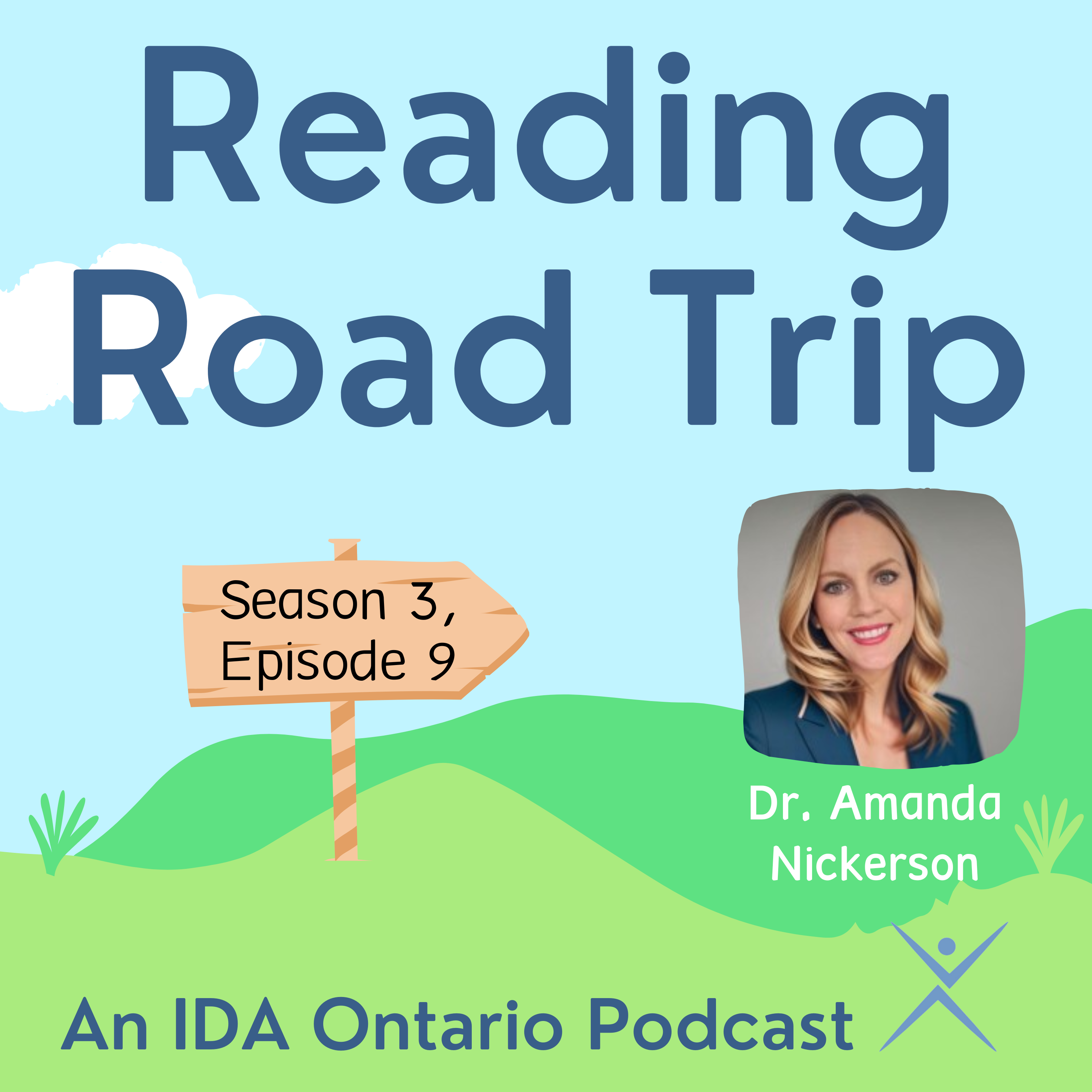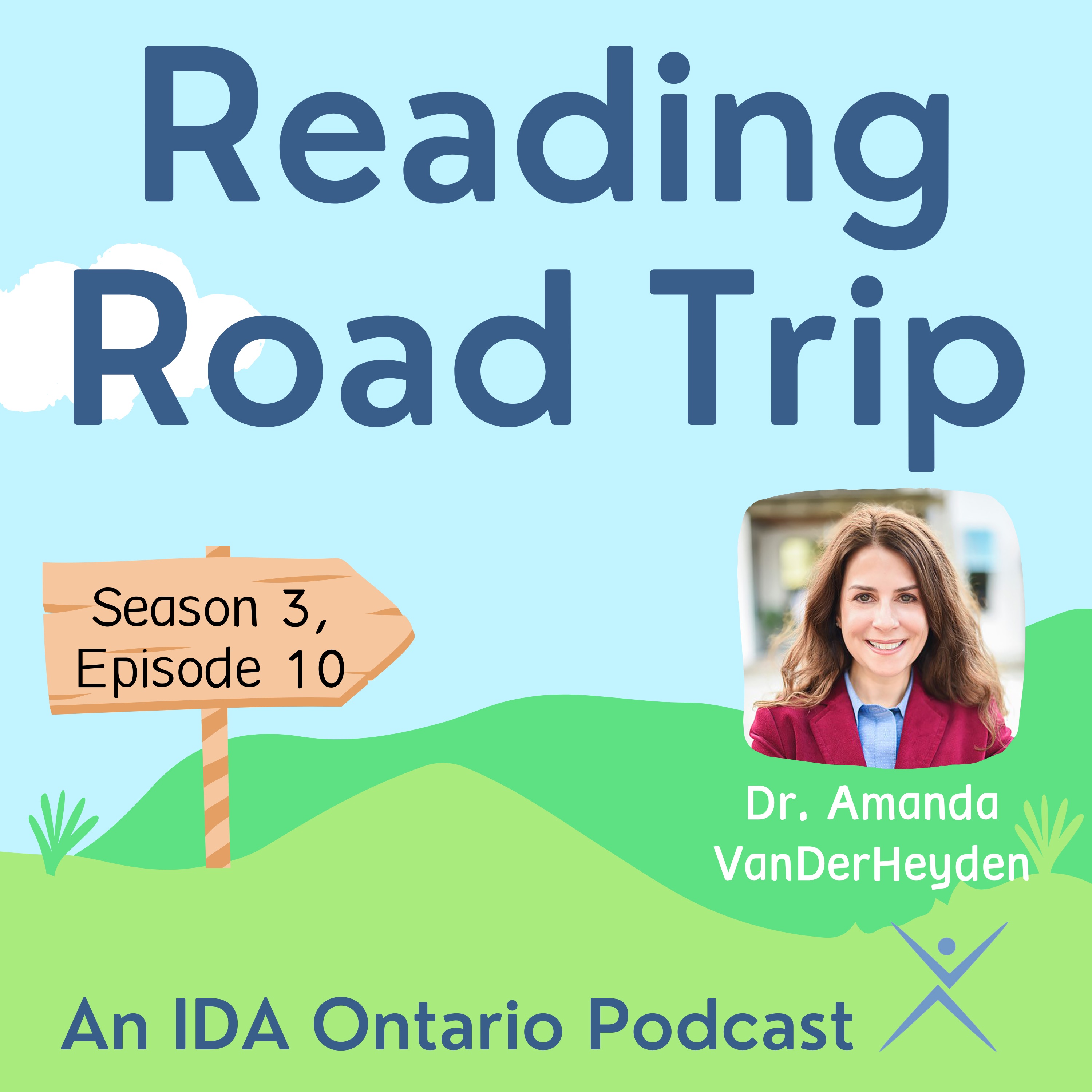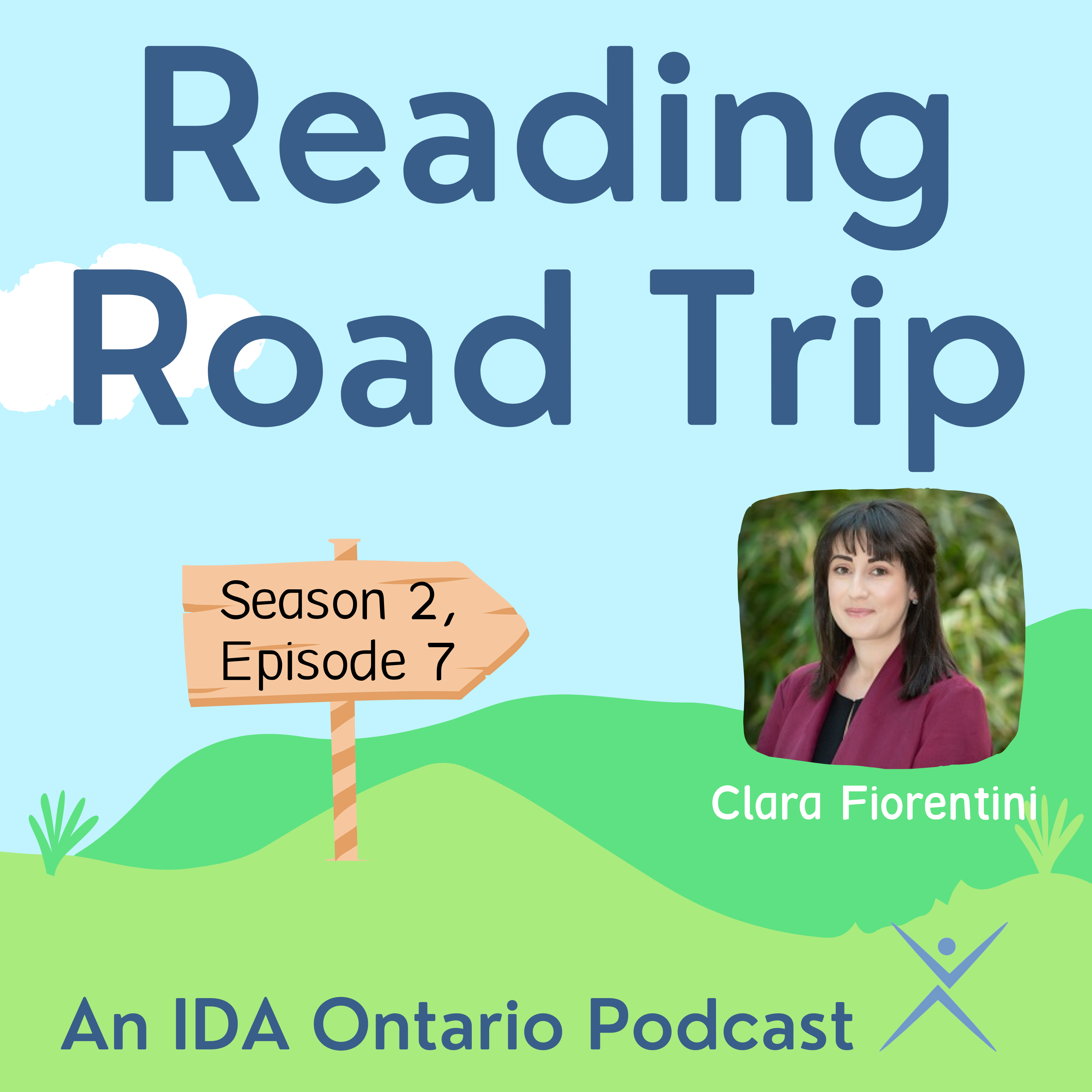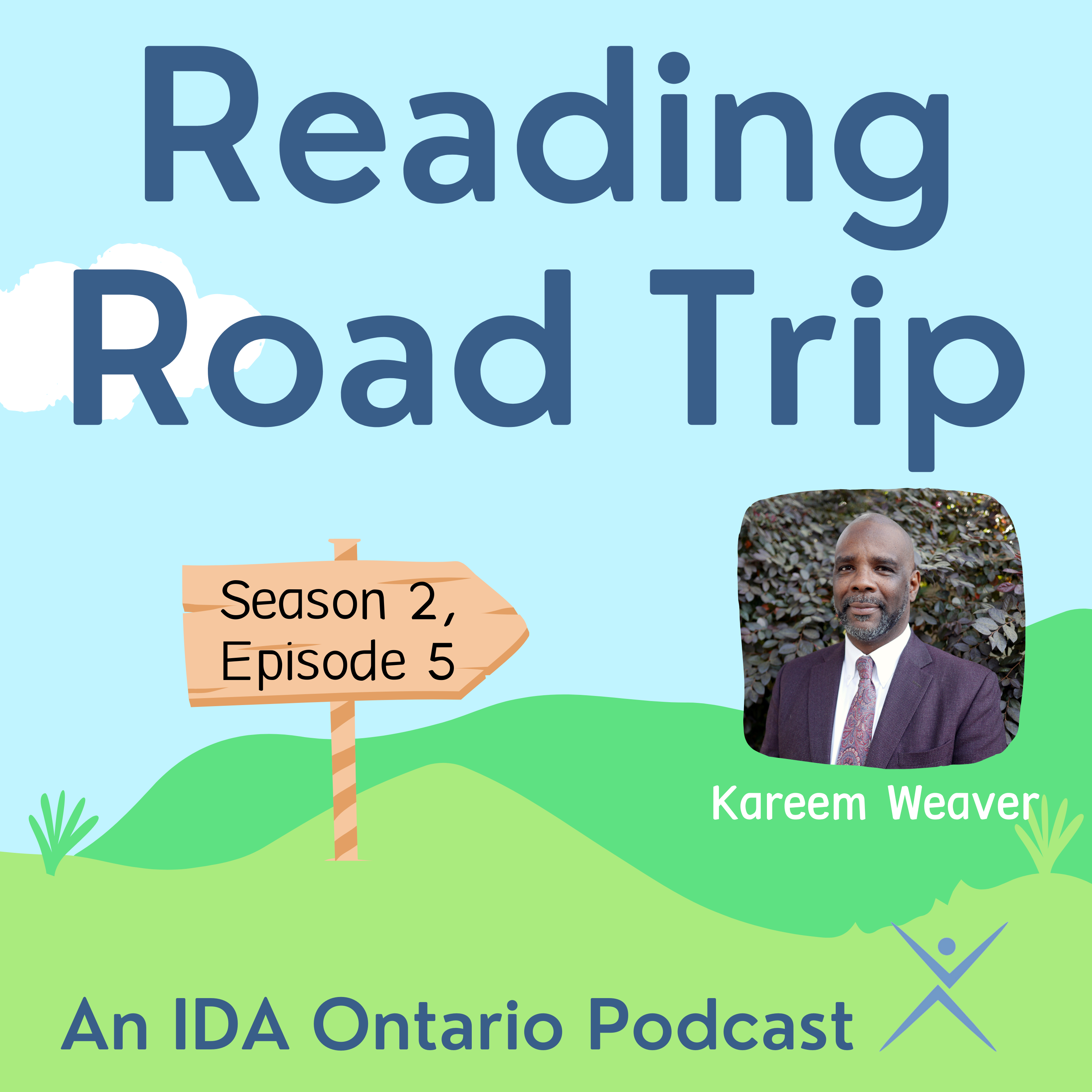Episode Transcript
[00:00:05] Kate Winn: Hello to all you travelers out there on the road to evidence-based literacy instruction. I'm Kate Winn, classroom teacher and host of IDA Ontario's podcast Reading Road Trip. Welcome to the 8th episode of season three.
Before we get started, we would like to acknowledge that we are recording this podcast from the traditional land of the Mississauga Anishinaabe. We are grateful to live here and thank the generations of First Nations people for their care for and teachings about the earth. We also recognize the contributions of Métis, Inuit, and other Indigenous Peoples in shaping our community and country.
Along with this acknowledgement, and in the spirit of truth and reconciliation, we'd like to amplify the work of an Indigenous artist. And this week we are sharing Nutshimit: In the Woods by Melissa Mollen Dupuis, illustrated by Elise Gravel. The Innu word Nutshimit signifies the physical and social space to practice traditional activities and language. Join author Melissa Mollen Dupuis on a guided walk deep through the forest to learn some of the rich culture of the Innu people.
Readers will discover the importance of natural world and learn a few Innu words along the way. Thoughtfully brought to life by Elise Gravel’s signature comic style illustrations, Melissa’s colloquial narrative and anecdotes detailing her lived experiences offer a deeply personal look at Innu life.
Note that the Scholastic website listing also includes an audio glossary which can be very helpful. Add this one to your home or classroom library today. And now on with the show.
I am so excited to introduce this week's guest here on Reading Road Trip. Dr Andrea Fraser is an assistant professor in the Faculty of education at Mount St. Vincent University in Halifax, Nova Scotia, where she teaches literacy related courses in both the undergraduate and graduate programs. She has over 20 years of experience in k twelve education as a classroom teacher and reading interventionist, as well as supporting system changes as a literacy consultant and coordinator. Andrea holds both a PhD and MEd in curriculum and instruction, a post-degree certificate in special education, and a Bachelor of education. She has completed her classroom educator Orton Gillingham training and is a certified structured literacy classroom teacher through the International Dyslexia Association's Center for Effective Reading Instruction. Welcome to the show, Dr Andrea Fraser.
[00:02:37] Dr. Andrea Fraser: Thanks for having me, Kate. I'm really excited to be here.
[00:02:41] Kate Winn: Because of the expertise you havee're going to focus today on sort of systems level and higher ed issues and topics in literacy, and I'm going to start by taking you back earlier in your career to ask you about your work as a learning disabilities itinerant teacher in Saskatoon. What did that look like?
[00:03:00] Dr. Andrea Fraser: Yeah. So when I took on that particular role, the school board had two significantly different approaches to reading instruction. So it was a really interesting time to be in that role. And so you need to understand what the classroom instruction was like and then also what the intervention work was like that was happening in the school. So for the classrooms, every single teacher in kindergarten through grade two in that school division, the reading instructional approach was what was called PWIM. And I'm not sure if people are familiar with PWIM.
It stands for the picture word induction model. So the approach, I guess, was really what I would consider a whole word reading method. And we saw this in K through 2, and this was a mandatory approach to reading instruction that every classroom teacher has extensive training in, and then was obligated in a way to teach their reading in that way.
So that's what classroom instruction looked like. But resource teachers were starting to provide reading interventions that were based on the five pillars. So phonological awareness, phonics, fluency, vocabulary, and comprehension.
So we had very different approaches to instruction happening in the same school, what was happening in the classroom. And then for students who had access to intervention, they were getting a very different approach to instruction. So when I became the learning disabilities itinerant, my role was to provide the professional learning for resource teachers. So we provided professional learning on each of the pillars, and then what that looks like when you're designing and developing reading interventions for the students that you're going to be supporting.
So along with providing the professional learning, I was able to work directly with resource teachers through the intervention process. So I would come in and sit with them, and we would look at student data. We would decide collaboratively, you know, which students might be appropriate to have within the intervention. So student selection, we would work together to design their intervention. Because we didn't use any particular program for reading interventions, the resource teachers are designing those sort of from the ground up based on the student data and what it is those students need. I would support them with administering different types of assessments. And so there was kind of an element of a coaching role in that particular role as well.
And then I also was able to do some work directly with students. And so, you know, sometimes part of my role would be to work directly with students who were typically in grades four through eight and maybe had been through some of the interventions in previous grades, but still had really significant gaps. And so some of these students may have had a dyslexia diagnosis. Others, you know, didn't necessarily have that. But, you know, we were looking at students who were in maybe grade seven or grade eight, and I, we were working on things like learning the initial, like the vowel sounds. I mean, we're talking significant gaps where their engagement and learning in the classroom is really obstructed just because of how significant their gaps were.
So for me, really, this role, when I think about that role in particular in my career, that's sort of where my science of reading journey started. This role really gave me the opportunity to get additional training.
I started to seek that out because now I was delivering and coaching professional learning to resource teachers, to these interventionists, and I knew I needed to deepen my own understanding. So I really hold this role kind of fondly because it's like my science of reading origin story.
[00:07:27] Kate Winn: That's great. I love that. So, obviously, you were starting to make a broader impact in that role, but I know that you also worked as a literacy consultant. And I'm curious to ask, what did you find were some of the challenges of trying to move an entire system towards evidence based literacy instruction, which, as you were describing in the classroom, was not necessarily happening?
[00:07:50] Dr. Andrea Fraser: I mean, there were a lot of challenges, Kate. You know, you have to be honest about that. When we're thinking about moving an entire system, one challenge that really sticks out is that there's going to be hesitation. There's going to be resistance.
I was a classroom teacher for many, many years, and I thought I was teaching reading well. We all do. We wouldn't, we wouldn't have. We wouldn't teach my grade one students and think, I don't really know what I'm doing. I don't think I'm supporting all of my students in developing as readers, but I'm not going to do anything about it. That's not how we are as teachers. We take this role very personally, and I think we have those strong relationships with our students and their families, and we think that we are doing and service our students in the best way that we know. So definitely we are going to see some, and we did. We saw some hesitation and resistance. And so, you know, we have teachers that we were working with. We have school based administrators who maybe came up as teachers that were trained in PWM, and that was all they knew. That was how they were, how they were taught to teach reading. And, you know, some of them may have been doing it for 15 years in that way, and they think that it's working or working, at least for most students. So that is definitely a significant challenge. I would also say that, you know, there's concern with provincial curricula, you know, that's going to guide us.
Probably a significant amount of the professional learning at a school or system level that's been offered is going to reinforce what your provincial curricula says.
And so if, if that has a balanced literacy orientation, then that is how you're going to be trained or the professional learning that you're going to be exposed to. And so in Saskatchewan particularly, that curriculum has not changed like it has in Ontario. So we were trying to shift instructional practices and build knowledge, but we still obviously had teachers and administrators saying, however, we are guided by the curriculum and now these really don't align. And so how are we going to navigate that? How are we going to support teachers in thinking about, well, if I'm reporting to parents, I'm reporting on curricular outcomes, but yet this isn't necessarily how you're asking me to shift my instructional practices.
You know, I would, I would say that the biggest challenge was how do you retrain all of your teachers in the system?
So we were coming from system that did have a lot of funding in previous years, and they were training every single kindergarten through grade teacher, through grade two teacher to read through this whole language or balanced literacy approach. So it didn't matter if you had 15 years of teaching experience and you were new to that school division, you were still then being trained in PWM and you had extensively extensive professional learning over the course of a year to be trained in that. And now we were coming in and we want to really, it's not about just like, you know, here's something new. Let's do the new.
They have to unlearn. They have to think about and understand what they were doing in the past. So we tried different ways, we tried different models.
You know, I think that some teachers got some learning, but you're also not going to shift your, your entire instructional practice. If you receive two or three, you know, half days of professional learning in a year, it takes a lot longer than that. And so we didn't have the capacity, we didn't have the funding to make those meaningful changes to instruction that are going to impact student learning.
So we did seek out a partnership with the reading league and worked with Dr Heidi Beverine Curry that really was supportive of us. We had a very small team. I think there was about four of us literacy consultants trying to lead this work. And so initially, when we began the partnership, Heidi led some PD with system leaders and school based administrators to really begin that work of establishing a professional understanding. And then she would do training. It was sort of like the train the trainer model, where she would do training with us as literacy consultants, and then we would lead the work with a number of schools.
But again, I mean, as great as this partnership was, it was also limited in scope because we were not able to go to every single school and then provide the PD that the reading league was providing us. We only had a certain number of schools that we could do that with. School based administrators and systems are trying to balance, you know, what are our initiatives? How many literacy PD's are you going to offer your staff throughout the course of the year? These PD days are limited. Other work that needs to be done. And so, you know, as lit consultants, we're kind of fighting for time. We're fighting for time in admin meetings to give information to administrators. We're fighting for time at staff meetings or on those professional development days. It's really, really challenging to think that, you know, over the course of one, two, three, even five years, you're going to really make significant changes with an entire system.
[00:14:06] Kate Winn: Yeah, no, those are all such excellent points, and we are going to, in a moment, touch on how to get to the teachers earlier, before some of this happens, but before we leave your role there, I understand that when your system implemented universal screening for the first time, instead of some past assessment practices, the first round of data was a bit tough to swallow. Could you just tell us a little bit about that and it might just help prepare listeners who may face the same situation.
[00:14:33] Dr. Andrea Fraser: Oh, yes, definitely. I would venture to guess that if shifting to universal screening measures, it's not a question of they may see some significant decline in their data, it's that you will see it. We were warned about that. We were at the point with Dr Beverine Curry that she said you can't be teaching in this way, but yet still use assessments that are unreliable and that aren't valid because you don't have a solid or clear understanding of where your students are at. Heidi had said you're going to see a decline in your data because what we know about previous assessments are that, you know, they were unreliable, that they weren't correctly identifying the students who had reading difficulties.
So, you know, I do want to highlight that this is important for all stakeholders to be aware of when moving to universal screeners. You know, our system had actually kind of, you know, done that prep work, even going to our school board, our board members, and saying, you know, next year we're using a different assessment. This is, you know, a valid, this is a reliable assessment measure. And so we are going to see, or likely going to see a decline in the number of students who are reading proficiently.
And so we saw, I would say we collect data for, as a system for grades one, two and three. And there was, you know, about a 10% decrease in the data across grades one to three from what we had in previous years. And actually, in some years, there was almost a 15% decline, and that's the students who are reading proficiently or who are reading at grade level. And so that's really concerning because, Kate, to be honest, the data wasn't good with the previous assessments.
And I think we maybe think that that's almost the norm. When I looked back at the last ten years of collecting data in the province, we were always kind of sitting around maybe 67% to 72% of students in grade three reading at grade level. And that really wasn't making any significant changes, despite some provincial initiatives to increase student data over the next five years. And, you know, it never, ever happened. So, you know, what is it that we think? Do we think that only 67% of students should be reading at grade level? Because, you know, that is what we've seen over the last ten or 15 years.
We know from research that that just is not the case. And then using some reliable screeners, all of a sudden now, you know, we were at, in some cases, like, 47% of students reading at grade level. Less than half of our students are reading at grade level.
And so I think, even for us, having been warned that our data would decrease, I think the number was actually like, wow, we didn't realize it was this bad.
So it is concerning, but what does it do? It provides us with this urgency for the work to make improvements.
[00:18:27] Kate Winn: That's great. I know many of us, and when I say many, I think at last count, it was 236,000. And some are members of a Facebook group called science of what I should have learned in teachers college. And I think the situation is similar for a lot. Majority of current practicing teachers trained in Canada, trained in the US. I'm hoping that maybe the most recent grads out of Ontario, maybe since the right to read might be, might be okay. But I think most of us who are out there practicing right now were perhaps not trained as we should have been. So could you just kind of briefly, before we get into the why, just kind of explain, how would you describe what most of us learned in teachers college about literacy?
[00:19:08] Dr. Andrea Fraser: Yeah, that's a long time ago for me.
And, you know, obviously, teacher prep programs vary across the country with respect to the number of literacy courses that are required. I think what sticks out is a focus on maybe unit planning broadly, you know, broad unit plans, definitely attention to varying assessment tasks and drawing on learning styles. So, you know, here is my lesson. Here is my assessment, and here are all of the different ways that students could present their. Their learning or understanding based on a learning style, which, of course, we know does not have a research base.
And, you know, I think. I think back, maybe there was a focus on literature, on readers responses. I do remember having to read different texts, and then I would be writing my reading responses. And I think, you know, that the purpose of that would have been, you know, that that is something that I would then take into my own teaching where I'm having students read and do a reader response.
I think things like planning for literature circles, considering which texts you might use and how you would group students. It's been a long time since I was in my teacher prep program, but I have to say that I think there's aspects of that that continue to be prevalent. You know, even before I was at the university, you know, I was in sort of these coaching or consultant roles within the school division and working with a lot of new teachers, and I definitely saw a lot of that still coming through as they were beginning their own careers in the classroom.
I can't tell you, Kate, how often I still hear students and I'm talking like, undergrad students or brand new teachers continue to talk about learning styles, whether it's, you know, they're identifying to me what their own learning styles are or, you know, it's. There's still that, you know, notion of assessment and how I'm going to differentiate based on learning styles. We definitely see undergrads coming out of their programs with beliefs that privilege meaning over accurate word reading. So, you know, if there's an oral reading error, would you correct it? And these teachers or these, these new teachers or the undergrads are saying, you know, most definitely I would not correct that if the meaning is retained.
So it's interesting because I did like some of this work I did in my doctoral program, and, and there was still this continued belief, even after a required literacy course, that they didn't want to correct children when they were making oral reading errors or support them in actually learning how to decode unknown words because they thought it would embarrass children or frustrate them or turn them away from reading. And so our students in our undergrad programs are still being taught that we're going to privilege meaning. And of course, you know, we know. I'm not suggesting that meaning is an important. Comprehension is critical, but there's still this perception that if meaning is retained when there's a reading error or a child just guesses or skips a word or whatever it happens to be, if they still understand what they're reading, then that's okay. And so we're not supporting our undergrads in learning about how to actually teach the decoding. So I think that really hasn't changed a whole lot over the last 20 years.
[00:22:55] Kate Winn: Well, what I'd like to ask you next, and I know some of this is just opinion, but I think you and I had similar experiences. I mean, I became a teacher in 2000 and I think what we hear from all people in these Facebook groups or teachers that we work with and that sort of thing, we know that this is still kind of what's being taught in teachers college. And certainly some of the things you talked about learning styles, no evidence base, right? Some things that we were taught aren't bad, but they just aren't the most effective approaches. We weren't taught how to actually teach kids to read. Right. Those important things. So I'm curious what your thoughts are on. Why has this been such a pervasive approach in higher education and continues to be in some places? When we know that the research about effective and ineffective practices has been around for decades, it's not like the right to read came out and all of a sudden this was brand new. Ontario got to learn about this because they never had the opportunity before. This has been around. Right? So no matter what province, no matter what state, we're still seeing this. And we definitely saw it in the past in teacher prep. Why?
[00:23:57] Dr. Andrea Fraser: Oh, this is, you know, this is such an interesting question because, yeah, for many people engaging in this work, whether it's teachers working to learn more and shift their own practices, or maybe it's coaches or school based administrators or system leaders, there is that misconception that the science of reading or that research base that contributes to the science of reading is new, like you said. Oh, you know, the right to read came out and suddenly only in the last two years has this research or this evidence existed. No, that's not true. Right. So we know that the research that has contributed to what we call the science of reading, that body of evidence, has existed for 40, 50, 60 years.
Of course, this research is always happening. It's always evolving. You know, when we think about why courses in higher education, so our required literacy courses and even those maybe that are offered as electives, you know, why might they privilege some of those flawed understandings? This is definitely a personal opinion. I think there could be several reasons when we're working with teachers and maybe you're not working with, maybe you are the teacher and you're having to come to terms. And we hear this a lot from people where there's maybe, you know, some. Some grief, some, you know, feelings of shame or, you know, whatever those. Those negative feelings might be about. You know, this is how I taught reading for so many years. And I know now that that was not supportive. And, you know, I can think back to teaching grade one, and I can recall specifics, students who I know.
I don't think I realized it quite to the extent then that I do now, but I know that the way I was teaching reading was not effective for them.
And that's hard, right? It's hard to think about those because these are real, real children. We talk about data a lot. We talk about percentages and numbers of kids reading proficiently. But, you know, we can actually, I'm sure all of the teachers listening can actually think of real children that we know we maybe didn't do the best for that. We could have had we known better.
And, you know, I have to say that that's got to be the same way with some of the professors and instructors teaching these courses. They may not have have a solid understanding of that research or evidence base, and, you know, they would have to come to those same terms themselves in, you know, how I've been teaching these courses, how I've been supporting these pre service teachers is not, you know, necessarily preparing them to be effective teachers of reading. And so they would definitely have to go through that. And I'm not sure, you know, everybody's willing to do that. We do hear you. We have to reconcile that what we did in the past was perhaps misinformed and didn't support all children in learning to read. There is a culture of professional autonomy in higher education, so, you know, you are able to design the course content and choose your textbooks. And so with that, you're really privileging and perpetuating those perceptions of reading instruction and development that you choose to. And so there may be several reasons of about, you know, why I am going to choose a particular textbook. You know, maybe I authored it. Maybe a close colleague was the author of it. I would say that, you know, not all professors have an in-depth knowledge of aspects related to those foundational reading skills. So there would definitely be a cost and time consideration for engaging the actual professors and instructors of these courses in professional learning in this area. And so with that, you'd have the cost, you'd have time consideration and you would also need buy-in from those instructors and faculty members teaching these courses, which could present as a challenge. You really need to have open-minded and willing professors that are going to say, okay, yes, I actually need to build my own capacity in this area before I then work to support the students in my classes, to prepare them to be teachers of reading.
And I think, too, we do hear that these groups are called what I should have learned in college. And I did an undergrad degree, I did a special education certificate, I did a master's in curriculum and instruction with a specialization in reading and then a PhD in all of that work. I did not learn anything about how to teach reading in this way. So we can, we can go to school for a lot of years. We can, you know, spend a lot of money trying to get these additional degrees. And, and it's absolutely, absolutely true that, that you really have to seek out programs that are going to, that, you know, will address reading instruction and reading development.
Based on this corpus of evidence, I would say absolutely. We know that our teacher prep programs across the country, across North America need to be designed better. That's kind of the start, right? They're going to build that or create that foundation for our pre-service teachers to then go into classrooms in Ontario. You have a new curriculum. And so hopefully some of these, these pre-service teachers in their teacher prep programs, hopefully those, those instructors are designing course content so that they're, they're aligning what they're learning in these, in these literacy courses to the provincial curricula in the provinces that I've worked in.
That's a real challenge because, you know, my, my teacher candidates are saying, you know, but this is what it says in the curriculum, but this is what you're teaching us in class.
How am I trying to navigate or align the two when they don't really align? So, you know, yes, higher Ed has a role, a significant role in this work, you know, as does this entire system with curriculum, with schools, with systems or boards. I need for my teacher candidates to be going into their field placements with strong teachers who are going to model this work in the classroom because, you know, I've had students come back from field placements and say, this is what we're talking about in class. This is what I'm seeing in the school, in my classroom that I'm in. You know, they're very different. And so, you know, there's a lot of work to be done to kind of make this cohesive system to really, you know, support these new teachers starting in this work.
[00:31:12] Kate Winn: Well, now you are an assistant professor who works with pre-service teachers and you've mentioned a little bit about that. Any other things that you do differently to train them, knowing how, how you were trained and how you want this to be, how you want this to go better?
[00:31:26] Dr. Andrea Fraser: Yeah. I was a classroom teacher and worked in the school division for over 20 years. I can talk very candidly with my students about what it is that I did, why I did it, and why it didn't work. There's this process of unlearning. I need to know why particular approach might not be supportive of all students so that I don't fall back and do that again.
We're in this interesting profession where we have a lot of experience in the classroom before we actually become teachers and now we were students, right. But we all went through k twelve education ourselves.
So I think it is important to think about when I'm working with teacher candidates at this point. When I think back when they were learning to read, which would have been maybe, you know, 15 years ago for some of them.
What was the predominant approach to reading instruction 15 years ago? That's the experience that they're going to draw now. Some of them don't really remember how they learned to read. They feel like they just knew how to do it. Whereas students who found reading, learning to read difficult really remember that. They remember why it was difficult. They remember what teachers did or did not do to, to support them. They remember being pulled out to get reading interventions and so on. So we talk a lot about that because I need for them to understand.
I want my students to leave my class appreciating the complexity of learning to read.
I want them to know that you are going to work with students who are going to find it really difficult and that you have a significant role and a moral imperative to do this work in a way that offers all students access to develop those professional reading skills. You cannot just read to kids and think that they will learn to love reading. You cannot just have print and words in your classroom, on your walls, comfy reading corners, lots of different books of lots of different genres in your class. I love what Dr Anita Archer says when she says we need to put the teach back in teacher because I think that there's this idea that we're shifting the responsibility kind of away from the teacher in supporting reading development, and that if students struggle, they just need more time or they need to read more or they're nothing, you know, reading at home enough. You know, as teachers, we're maybe not taking on that responsibility. And I really want my students to know that, you know, this is your responsibility, and there's actually, you know, we can do it.
[00:34:23] Kate Winn: I do want listeners to know that here at IDA Ontario, we try to support pre-service educators as well. And so we just want to throw it out there that the basics of decoding and spelling instruction course is available free from IDA Ontario to canadian pre-service teachers, to ECE students, to EA students. More than 700 pre-service educators have access this for free. And then, of course, many in-service educators have paid for this course. It's not expensive, even if you do have to pay. I just took it a few years ago and learned so much about, just like it says, the basics of decoding and spelling instruction. So we will link to that in the show notes. If you know anybody who's pre-service in pre-service education, but also if you're willing to, to pay a very small fee to, to take the course, that is their there for educators as well.
So, Andrea, I want to ask you about ONlit. You have been helping to support us here in Ontario with our implementation of the new curriculum, and you did a fabulous job last year leading the ONlit Systems Change Collaborative. Could you share for listeners what this was about and who might want to join it for the upcoming school year?
[00:35:29] Dr. Andrea Fraser: Yeah, this was a really great opportunity, and I want to thank ot for this.
I think in education, this is sort of almost groundbreaking. Maybe that sounds kind of over the top, but I find that in education we tend to work really siloed, even within the province. So school divisions or districts or boards aren't really talking and communicating and working with other districts or boards.
What we did here with Systems Change Collaborative was, you know, invited system leaders. So it was superintendents who maybe had literacy as a portfolio aspect of their portfolio. And we had, you know, the literacy consultants or coordinators or, you know, those, those types of leaders within this group representing the different, the different boards. And it was really about creating this collaborative culture.
We are all doing this work for the same reason. We want to impact student learning. We need to build teacher knowledge, we need to build administrator knowledge and so on.
But with Systems Change, we were able to bring people together from the different boards, and there was always an aspect of kind of knowledge building. And this year we really focused on aspects of multi tiered systems of support.
As the boards are in Ontario are beginning to implement universal screening measures, we had some who have been doing that and kind of were early adopters of that work and, you know, have been adopting or have been implementing universal screening measures for maybe a few years now. Others just starting or piloting, you know, this past year, others that are really going to start doing that work coming up this fall. And so the work that we did together this year was about learning about what is that cohesive system? How do those universal screening measures fit into the larger system? We met twice, usually about twice a month, just for an hour during the day, on Fridays.
We would have the time then for group discussions where we mixed the different people from different boards. And it's really about learning from each other. You know, what is it that you've been doing? What worked? What didn't? I'm just starting this. What should I know? So I loved this group. I thought it was really effective. The feedback we got from people who were coming to the sessions was really positive. So I would say, you know, we are going to continue that for next year. I would love to see representatives from, from all school boards in Ontario because, you know, we definitely were missing some representatives from some of the boards. You know, we're really working together to think about what does this look like provincially?
[00:38:42] Kate Winn: Well, thank you so much for your leadership with that, with that collaborative. And I want to shout out my, my board, the PVNCCDSB, because I know our superintendent, Sheila Pigott, and our literacy consultant, Lindsey Bowen were part of that as participants, as learners, but also able to share some of the great successes and things that we've had going on at our board.
[00:39:02] Dr. Andrea Fraser: So.
[00:39:03] Kate Winn: So, yay. Yay for them. I'm proud of. Proud of the people that I work with. Before I let you go, Andrea, is there anything that we have missed today that you want to share? Anything, you know, upcoming work of yours you want to direct listeners to before we say our goodbye?
[00:39:19] Dr. Andrea Fraser: Well, I guess I just want to end by saying, you know, I do think. I know this is. It's a challenging time in classrooms. I know that it's maybe, you know, a challenging time to be a teacher of reading, but just because it's challenging doesn't. That doesn't need to be negative. I think it's a really exciting time to be a reading teacher. There's so many exceptional teachers in Ontario that are really digging into this work and making a significant difference. And it's really exciting to be able to connect and follow along with what's happening, whether it's through social media or podcasts or whatever it happens to be.
Sometimes we draw on what's happening in the United States, but there's significant work happening here in Canada.
Such an exciting time to be a teacher of reading.
[00:40:12] Kate Winn: Well, it has been so wonderful to have you with us for this episode of Reading Road Trip. I know your voice was not at its best today and you hung in there, which we will all benefit from. I'm sure listeners have learned as much from you as I have. So Dr Andrea Fraser, thank you so much for being here with us.
[00:40:28] Dr. Andrea Fraser: Thanks for having me, Kate.
[00:40:32] Kate Winn: Show notes for this episode with all the links and information you need can be found at podcast.idaontario.com, and you have been listening to season three, episode eight with Dr Andrea Fraser. Andrea mentioned the resources available ONlit.org and we wanted to let you know we have a new one, a free set of downloadable embedded mnemonic cards as well as animations that introduce each one and show the letter formation strokes that can be shown to students. And anyone can access these resources at ONlit.org. We will put a link specifically to the new embedded mnemonics in the show notes too, and you can learn about the research behind those as well. We also mentioned the Basics of Decoding and Spelling Instruction course from IDA Ontario and how it's free for pre-service educators in Canada. We also want listeners to know it is also free for practicing teachers in the First Nations schools.
And now it's time for that typical end-of-the-podcast call to action. If you enjoyed this episode of Reading Road Trip, we'd love it if you could rate and or review it in your podcast app as this is extremely helpful for a podcast. Of course we welcome any social media love you feel inspired to spread as well. Feel free to tag IDA Ontario and me. My handle is thismomloves on Twitter and Facebook and katethismom loves on Instagram.
Make sure you're following the Reading Road Trip podcast in your app and watch for new episodes continuing every Monday throughout the summer. We couldn't bring Reading Road Trip to you without behind the scenes support from Katelyn Hanna, Brittany Haynes and Melinda Jones. At IDA Ontario, I'm Kate Winn and along with my co producer, Dr Una Malcolm, we hope this episode of Reading Road Trip has made your path to evidence-based literacy instruction just a little bit clearer and a lot more fun. Join us next time when we bring another fabulous guest along for the ride on Reading Road Trip.
